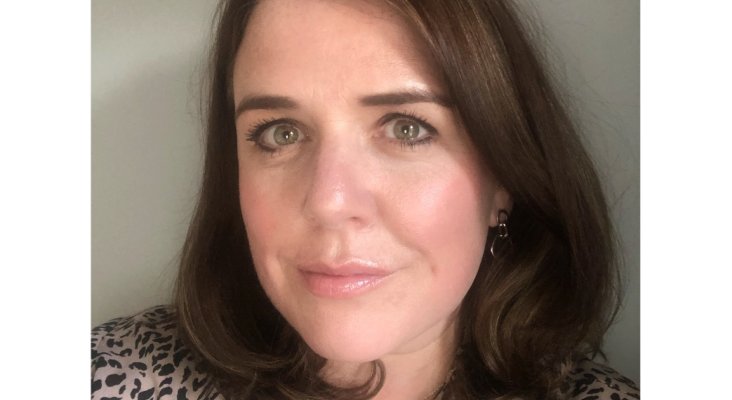
Jo Yarker;PhD, MSc, CPsychol
Managing Partner
Professor Jo Yarker conducts pioneering research and leads on strategy development, risk management and training and development programmes. Together with Rachel, she provides leadership and direction for Affinity. She contributes to national guidance and publishes widely to share new knowledge, evidence and tools to promote and sustain health and wellbeing at work. Alongside her work at Affinity, Jo is a Professor at Birkbeck, University of London and has been recognised by the British Psychological Society for her outstanding contribution to the profession of Occupational Psychology.
Why do you work in the Wellbeing field?
Affinity Health at Work was born in 2006 with an aspiration to partner academic rigour with practical, real-world approaches to improve health and wellbeing at work. With our team at Affinity, our clients and our research partners, I strive to develop solutions that make a difference to peoples' working lives, which is what makes working in the wellbeing field rewarding for me.
My work is driven by three things:
First, everyone has a right to well-designed and well-managed work; work that is safe and allows people to thrive, where people are recognised for their contributions and supported by others when times are challenging. We are not there yet but whichever way you look at it – with a moral, legal or business lens - it makes good sense.
Second, evidence is at the core of all we do at Affinity – creating evidence and using evidence to guide solutions. There is so much noise in the field of workplace wellbeing that it can be hard to know what to do for the best. We look to the evidence to guide us on what works, and what doesn't in different situations, and our vibrant research programme means that we are creating and sharing new evidence for all, all of the time.
Third, no one can do it all on their own. Everyone needs to be supported at home and work to stay well and do their best work. This is why we look beyond the individual and take a whole-system approach to wellbeing – understanding the individual, the people they work with, and the organisational and national context in which they work.
Wellbeing Areas of Particular Interest
Job Design, Psychosocial Risk Management, Sustainable Return to Work
To find out more about Jo's research and practice

Rachel Lewis;PhD, MSc, CPsychol
Managing Partner
Dr Rachel Lewis provides the leadership and direction for Affinity, alongside Jo. Rachel is widely published in the field of health and wellbeing at work and has contributed to national guidance, and evidence-based tools and interventions. She also leads on strategy development, risk management and training and development programmes. Alongside her work at Affinity, Rachel is a Reader at Birkbeck, University of London and has been recognised by the British Psychological Society for her outstanding contribution to the profession of Occupational Psychology.
Why do you work in the Wellbeing field?
The wellbeing field has come a long way from where it once was, particularly in response to the global climate in recent years, but we still have quite a long way to go before we see job design that is truly shaped to support and protect the wellbeing of its workforce.
Over my career I have seen, and continue to see, many wellbeing approaches taken within organisations that evidence suggests will have no meaningful impact. This has really solidified my stance that evidence-based practice should be at the forefront of my work, to ensure the quality and effectiveness of every wellbeing policy, intervention or guidance that I produce.
I have brought this principle of ensuring evidence-based practice with me to Affinity, and I am very proud of the company Jo and I have developed. Affinity works on this principle and it has become a core component of our work to ensure that any solution we recommend to organisations is sound, and that it has actual tangible benefits to the workforce.
We recognise that there cannot be evidence-based practice without the evidence itself, so Affinity strives to also produce pioneering research that expands the knowledge of our field whilst providing guidance for what best practice looks like. I am very proud of the contribution we have made to the evidence base and how it has allowed us to make a difference in the lives of employees across the globe. This is what continues to drive me.
Wellbeing Areas of Particular Interest
Job Design, Psychosocial Risk Management, Resilience

Claire Agate;MCIPD, MSc, PGDip, GMBPsS
Senior Consultant
Claire works in research and consultancy capacities on a range of work wellbeing topics, including organisational risk assessment, training, facilitation, qualitative and quantitative research. Claire is also currently working towards her professional doctorate in Occupational Psychology.
Why do you work in the Wellbeing field?
Having spent much of my career in generalist HR roles for large global organisations, I deeply understand the importance of good leadership and effective job design for the protection of employee health and wellbeing. As a result, I thrive when I partner with organisations and leaders for the achievement of organisational wellbeing aspirations, leveraging my passion for organisational psychology, evidence-based practice, and my unwavering curiosity about people in organisations.
Wellbeing Areas of Particular Interest
Psychosocial Risk Assessment, Job Design, Leadership for the promotion of mental health and wellbeing.

Nathan Palmer;MSc, GMBPsS
Senior Consultant
Nathan supports a range of research projects – bringing together existing evidence and expert opinion to create new tools and more in-depth understanding of workplace wellbeing challenges.
Why do you work in the Wellbeing field?
Having worked in leadership positions in major national charities, I developed a passion for supporting people to thrive at work and enabling individuals and teams to be successful. Wellbeing sits at the heart of this and so the opportunity to support organisations to implement evidence-based solutions at Affinity is a great way to share my passion for making work more healthy and positive.
Wellbeing Areas of Particular Interest
Inclusion, Effective Management Practices, Supportive Teams

Marleen Reinke; MA, MSc, GMBPsS
Senior Consultant
Marleen is a HCPC registered Occupational Psychologist and supports across a broad range of research and consultancy projects. With a background in employee engagement survey research, workplace strategy coaching and neurodiversity awareness training, Marleen is currently working towards her professional doctorate in Occupational Psychology.
Why do you work in the wellbeing field?
The importance of individual health and wellbeing at work as well as a wider organisational culture with a focus on wellbeing has interested me throughout my time in consulting and one to one coaching.
Over the last few years I have developed an interest in the area of positive psychology, and the scientific research into practices such as gratitude, resilience and compassion and the impact of those practices on wellbeing and their integration into organisational culture. I am fascinated by the role that work can play in the health and wellbeing of individuals and in turn how the thriving of individuals collectively can lead to the success of an organisation.
I am excited to partner with organisations at Affinity, to design and implement evidence-based solutions that help their employees thrive at work.
Wellbeing areas of particular interest
Stress and burnout prevention, coaching, engagement, inclusive work environments

Toria Pagan
Office Manager
Toria manages our general office administration. She provides exec assistance and diary management, supports across project to co-ordinate our team's delivery and is the first point of call for team support from IT to contracts to social events.
Why do you work in the Wellbeing field?
Having worked for many years in TV production and then in early years education, I really value the impact that a supportive work environment and healthy approach to work-life balance makes. It is brilliant working behind the scenes at Affinity, helping coordinate the day to day office tasks so the team can really focus their efforts on sharing their knowledge, expertise and passion in making everyone's working life a happier and healthier place to be.

Sophie Walker; MSc
Consultant
Sophie works as a Consultant supporting projects in the field of workplace health and wellbeing as well as psychosocial studies. She completed her MSc in Occupational Psychology in 2022.
Why do you work in the wellbeing field?
Work is a fundamental part of daily life for so many of us for the majority of our adult lives. Your physical and mental wellbeing at work can have significant impacts on both your success at work and on the other parts of your non-working life.
I'm interested in using evidence-based approaches to support and help people and organisations thrive together and make work a more positive element of our lives.
Wellbeing areas of particular interest
Inclusion, Psychosocial Risk Assessment and Job Design

Oliver Bullock
Junior Consultant
Oliver works as a Junior Consultant at Affinity and supports a range of projects across working environment and workplace health and wellbeing. He has previously worked in human resource and project management roles in the NHS and in organisational change for a county council. These roles have given him experience working with both qualitative and quantitative data. Oliver did his BSc Psychology at the University of Plymouth and is working with us part time while he completes his masters in Organisational Psychology at Birkbeck, University of London.
Why do you work in the wellbeing field?
Work plays such an important part in our identity, so it is essential that workplaces are supportive and encourage individuals to live happily and healthily. I'm interested in working with organisations to design workplaces which support individuals to thrive both personally and professionally, with evidence underpinning this approach.
Wellbeing areas of particular interest
Job design, systematic processes, employee engagement

Divija Bansal
Junior Consultant
Divija supports a range of projects relating to workplace wellbeing and improving work environments. She has previous experience working as a Research Assistant as well as a Programme Manager for the NHS, bringing on board her learnings from the healthcare sector. She did her BSc Psychology at King's College London, and is nearing the end of her Masters in Organisational Psychology at City, University of London.
Why do you work in the wellbeing field?
Given that we spend nearly a third of our lives at work, it is vitally important that our workplace is a happy, healthy, and supportive place to be. Through my efforts at Affinity, I hope to positively impact wellbeing at work using my training as a scientist-practitioner - promoting better mental health for all.
Wellbeing areas of particular interest
Employee engagement, leadership development

Hannah Karrlein
Assistant Consultant
Hannah works as an Assistant Consultant supporting projects in the field of workplace health and wellbeing as well as psychosocial studies. She is working towards her BSc in Psychology.
Why do you work in the wellbeing field?
Through gaining experience in various internships, I realised working with people brings me joy. I further got to see the importance of a healthy workplace. Since the majority of one's life is spent at work, I want to contribute to help people create a healthy environment to thrive not only at the job but in every aspect of life.
By using an evidence-based approach sustainable positive changes are achieved and my academic skills are strengthened.
Wellbeing areas of particular interest
Organizational culture, job design and people development

Yass Rad; MSC, GMBPsS
Consultant
Yass is a consultant at Affinity, primarily contributing to the HSE Project OSCAR while also supporting various other initiatives. With a robust background in designing and delivering bespoke assessments and frameworks for a diverse array of clients, Yass brings a range of experience and expertise to her role.
Her project management skills are complemented by her passion for wellbeing research, which she continues to pursue part-time through her PhD studies at City University of London. This unique blend of practical experience and academic pursuit allows Yass to bring innovative and research-driven solutions to her projects.
Why do you work in the wellbeing field?
One of the main drivers for me working in wellbeing is being able to support others to step into their potential and thrive in their work and life. By working in this area, I am able to explore the issues which impact people both positively and negatively and find ways to mitigate these.
Research is a key driver for me because it offers a path to uncovering answers to complex questions. I thrive on the challenge of applying research findings to real-world situations, creating sustainable and lasting change. By addressing both the positive and negative influences on wellbeing, I aim to develop solutions that help individuals and organizations flourish.
Wellbeing areas of particular interest
- Perfectionism and its impacts on wellbeing.
- Workplace wellbeing interventions, specifically: Acceptance and Commitment therapy and Mindfulness.
- Early career employee wellbeing

Rowan Hughes
Marketing Associate
Rowan Hughes is a certified CIM Marketing professional with over 15 years of expertise in digital marketing, branding, strategy, and events.
She brings a wealth of experience to Affinity Health at Work during this exciting growth phase. Passionate about wellness and enhancing people's working lives, Rowan has led innovative campaigns across charities, healthcare, HR, and education sectors. Her specialties in HR marketing include employer branding, recruitment marketing, employee engagement, and internal communications.
Rowan excels in delivering impactful marketing solutions and is committed to empowering the Affinity Health at Work team, helping to create a healthier, happier workplace for all.

Zoe Hutchinson
Administrator / Executive Assistant
Zoe supports the Office Manager with all required aspects of team administration. She provides executive assistant and diary management support to the Managing Partners to allow them to focus their incredible skills where they are most needed. She relishes using her organisational skills and administrative background to support such a varied and busy workforce and will go out of her way to assist the team where needed. She has worked for many years in education but is very excited to be joining the wellbeing field and bringing a new balance and flexibility to her work-life world

Christian Ferragamo
Associate Consultant
Christian is an Organisational Psychologist supporting a number of client projects at Affinity. He specialises in employee mental health, resilience, engagement and personnel development for better wellbeing and performance.
Christian has a breadth of experience with regards to sectors, and has worked both within the NHS and with organisations across the finance, insurance, duty of care, media, retail and transport industries. Christian is passionate about supporting individuals, particularly during critical times of high pressure and change, by helping them build their own psychological toolkits. Working in close partnerships with clients, he has designed and implemented programmes to better assess, develop and engage their employees.

Rachel Foord
Associate Consultant
Rachel is a Work Psychologist and Development Coach with a wealth of experience ranging from HR consultancy, Leadership Development, Facilitation and Coaching, Change Management, Assessment and Selection, Performance Management and has a keen interest in Neurodiversity at Work.
Rachel works as an Associate with Affinity on various projects and supports the delivery of our BPS Certified Test User Training programme.

Jen Duckworth
Associate Consultant
Jen works regularly as an Associate with Affinity on various projects and supports the delivery of our BPS Certified Test User Training programme.
Jen is a Business Psychologist with a specific interest in creating great working environments, through culture change, management and leadership development and employee wellbeing strategy.

Alice Sinclair
Associate Consultant
Alice is a senior research associate with a focus on occupational health and wellbeing and coaching. She has over 20 years' experience in managing and delivering organisational research for a range of government departments including DWP, HSE, NIHR, the Welsh Government and the European Agency for Safety and Health at Work. She has worked with public sector organisations such as the NHS, police services and local authorities and with private sector companies both large and small.Alice has worked closely with Affinity for a number of years and played a key role in our review for the World Health Organisation. For both Affinity and Loughborough University she has worked on the development, piloting and implementation of the IGLOo Return to Work Toolkit. This has included delivering one-to-one coaching sessions to support individuals returning to work following long-term sick leave.

Fehmidah Munir
Associate Consultant
Fehmidah is a Chartered Health Psychologist, Associate Fellow of the British Psychological Society and registered with the Health and Care Professions Council. She is a Professor of Health Psychology at Loughborough University and works as an associate with Affinity to collaborate on a variety of projects.
Fehmidah has a wealth of expertise in workplace health and wellbeing from reviewing and improving workplace policies and practices on supporting good health and wellbeing, to designing and implementing organisation-wide programmes that support and balance both work and health, particularly for those with health conditions or disabilities.
Fehmidah has collaborated with Affinity on projects for the World Health Organisation, and in her role at Loughborough she is leading the pilot of the IGlOo intervention and delivering return to work coaching to support people back in.

